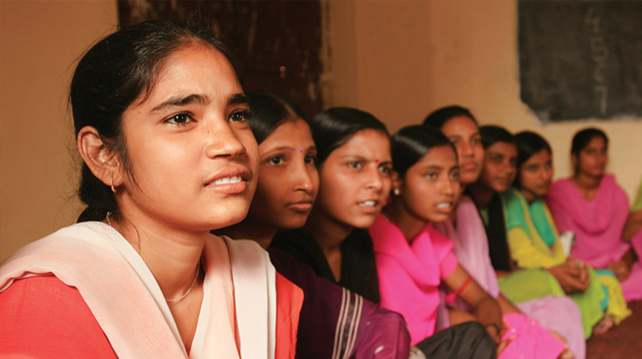
Many effective and acceptable practices in family planning and reproductive health are known but have not been scaled up. There is often a weak connection between technical knowledge and its translation into policies, programs, and action due to absence of systematic planning, country ownership, proven methodologies backed by evidence, and documentation/dissemination of the process and outcome of the scale-up.
E2A has strong technical leadership capacity in scaling up family planning and reproductive health interventions, through its core partner ExpandNet. E2A applies ExpandNet's approaches to scale-up as well as other proven methodologies including the Improvement Collaborative and Virtual Fostering Change. With a focus on systems, sustainability, scalability, and respect for gender, equity, and human rights principles, these methodologies/frameworks have a strong track record of success and are approaches that E2A employs in its work with governments and other stakeholders for scaling up family planning and reproductive health service delivery initiatives.
The ExpandNet methodology is a World Health Organization-supported framework coordinated by ExpandNet, a network organization that is one of the core E2A’s partner agencies. The methodology ensures systematic attention to scaling up either at the stage of planning pilot projects/field tests (Beginning with the end in mind: planning pilot projects and other programmatic research for scaling up success) or when the testing of interventions has been completed (Nine steps for developing a scaling-up strategy). When pilot projects are being designed, the ExpandNet methodology suggests that project planners take into consideration 12 recommendations related to the future potential for sustainable scale-up. The 9-step guide leads users through an analysis of their project interventions, focuses attention on the many actors and environmental forces that need to be taken into account and draws attention to the strategic choices that have to be made in developing a scaling-up strategy resulting in a set of recommendations for large-scale implementation.
The framework and methodology have been or are currently being used in interventions in China, Guatemala, India, Kenya, Kyrgyzstan, Madagascar, Mali, Nepal, Peru, Sierra Leone, Uganda and Thailand, in addition to influencing dozens of other countries via USAID’s Best Practices conferences.
E2A also works with other methodologies for scaling up, depending on country or local needs and requirements. These include the Improvement Collaborative and the Virtual Fostering Change methodologies. The Improvement Collaborative is an approach for rapidly improving the quality and efficiency of health care. It focuses on a single technical area and seeks to spread existing best practices to multiple settings through systematic efforts by a large number of “resource teams” within a time-limited period, usually lasting 12-24 months. The Virtual Fostering Change approach, on the other hand, facilitates a four-phase process by a country resource team selected through a participatory process that: defines gaps; identifies the benefits of addressing the gaps; selects a practice(s) that will address the gaps; and plans, implements, and continuously assesses and improves the practice first at a demonstration and later at scale, with a robust plan for documentation and dissemination of the results.
E2A strongly believes that lack of systematic scale-up of proven and promising family planning and reproductive health practices is a critical factor impeding the improvement of health outcomes for women and girls. This informs our commitment to build global and national partnerships for supporting countries with the needed technical assistance to systematically introduce and scale up country-level activities. Robust documentation of the process and outcomes enables evidence generation, sharing, and replication.
E2A currently leads a community of practice on scale-up that includes almost 2,000 members from 50 countries.